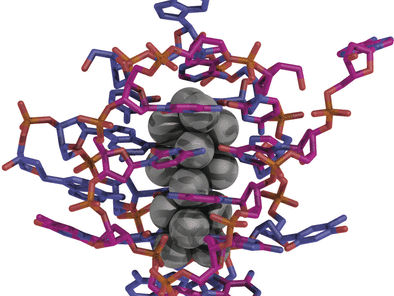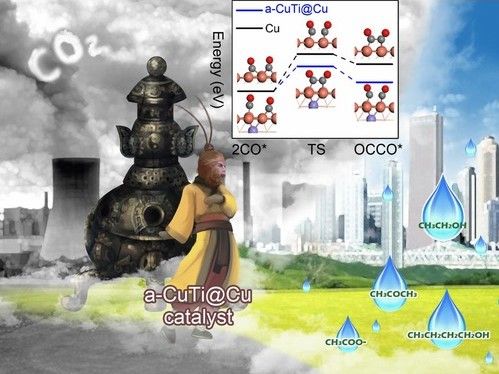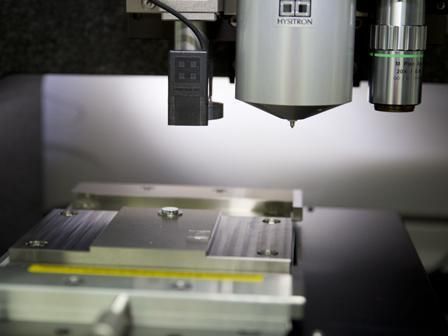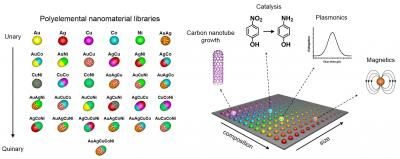Researchers synthesize magnetic nanoparticles that could offer alternative to rare Earth magnets
A team of scientists at Virginia Commonwealth University has synthesized a powerful new magnetic material that could reduce the dependence of the United States and other nations on rare earth elements produced by China.
"The discovery opens the pathway to systematically improving the new material to outperform the current permanent magnets," said Shiv Khanna, Ph.D., a commonwealth professor in the Department of Physics in the College of Humanities and Sciences.
The new material consists of nanoparticles containing iron, cobalt and carbon atoms with a magnetic domain size of roughly 5 nanometers. It can store information up to 790 kelvins with thermal and time-stable, long-range magnetic order, which could have a potential impact for data storage application.
When collected in powders, the material exhibits magnetic properties that rival those of permanent magnets that generally contain rare earth elements. The need to generate powerful magnets without rare earth elements is a strategic national problem as nearly 70 to 80 percent of the current rare earth materials are produced in China.
The team's findings will appear in the article "Experimental evidence for the formation of CoFe2C phase with colossal magnetocrystalline-anisotropy," in Applied Physics Letters.
Most read news
Organizations
Other news from the department science
These products might interest you

NANOPHOX CS by Sympatec
Particle size analysis in the nano range: Analyzing high concentrations with ease
Reliable results without time-consuming sample preparation

Eclipse by Wyatt Technology
FFF-MALS system for separation and characterization of macromolecules and nanoparticles
The latest and most innovative FFF system designed for highest usability, robustness and data quality

DynaPro Plate Reader III by Wyatt Technology
Screening of biopharmaceuticals and proteins with high-throughput dynamic light scattering (DLS)
Efficiently characterize your sample quality and stability from lead discovery to quality control

Get the chemical industry in your inbox
By submitting this form you agree that LUMITOS AG will send you the newsletter(s) selected above by email. Your data will not be passed on to third parties. Your data will be stored and processed in accordance with our data protection regulations. LUMITOS may contact you by email for the purpose of advertising or market and opinion surveys. You can revoke your consent at any time without giving reasons to LUMITOS AG, Ernst-Augustin-Str. 2, 12489 Berlin, Germany or by e-mail at revoke@lumitos.com with effect for the future. In addition, each email contains a link to unsubscribe from the corresponding newsletter.
Most read news
More news from our other portals
Last viewed contents
Violent nabro eruption shown to pierce stratosphere
Widespread uranium contamination found in India's groundwater

New Max Planck Institute in Göttingen Combines Natural and Medical Sciences - Largest institute in the Max Planck Society

Little Heaps of Silver, All Wrapped Up - Determination of the crystal structure of a DNA-stabilized silver nanocluster

Liquid Fuels from Carbon Dioxide - Electrocatalyst converts CO2 into multicarbon products





























































